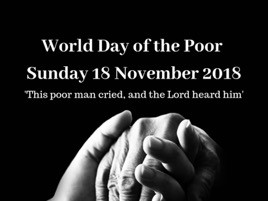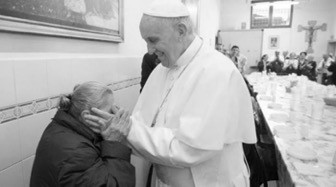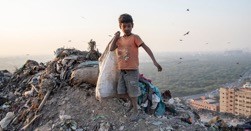However, our weekend readings served as a reminder to us of the end times and what is important to those who live a life of Christian faith. As I listened to the reading from the prophet Daniel (12:1-13) I was struck by the last sentence:
The learned will shine as brightly as the vault of heaven, and those who have instructed many in virtue, as bright as stars for all eternity.
Over the past week, during a week off, I have had one of my children and her family staying with me. Like many of you I wish for them to grow to a maturity in their faith, and the introduction to the Sunday readings in my missal again reminded me of why I desire this great gift for them and their children:
‘My words will not pass away.’ We live in a world of rapid change. Many of the places of our childhood have gone or been altered significantly. Customs, attitudes and pastimes are different now. All of this reminds us of the transitory nature of life. The heavens and the earth as we know them are passing away. Only the word of God stands forever. May we place our trust in the kingdom of God and not in the passing kingdoms we create.
I wonder how many of you are aware that Sunday marked the Second World Day of the Poor with Pope Francis writing a message for the occasion. I note some of the passages from his message for your consideration, and also to serve as an invitation for your parishes to pick up on this day next year. Pope Francis writes:
On this World Day, we are asked to fulfil the words of the Psalm: “The afflicted shall eat and be satisfied” (Ps 22:26). We know that in the Temple of Jerusalem, after the rites of sacrifice, a banquet was held. It was this  experience that, in many dioceses last year, enriched the celebration of the first World Day of the Poor. Many people encountered the warmth of a home, the joy of a festive meal and the solidarity of those who wished to sit together at table in simplicity and fraternity. I would like this year’s, and all future World Days, to be celebrated in a spirit of joy at the rediscovery of our capacity for togetherness. Praying together as a community and sharing a meal on Sunday is an experience that brings us back to the earliest Christian community, described by the evangelist Luke in all its primitive simplicity: “They devoted themselves to the apostles’ teaching and fellowship, to the breaking of bread and the prayers… And all who believed were together and had all things in common; and they sold their possessions and goods and distributed them to all, as any had need” (Acts 2:42.44-45).
experience that, in many dioceses last year, enriched the celebration of the first World Day of the Poor. Many people encountered the warmth of a home, the joy of a festive meal and the solidarity of those who wished to sit together at table in simplicity and fraternity. I would like this year’s, and all future World Days, to be celebrated in a spirit of joy at the rediscovery of our capacity for togetherness. Praying together as a community and sharing a meal on Sunday is an experience that brings us back to the earliest Christian community, described by the evangelist Luke in all its primitive simplicity: “They devoted themselves to the apostles’ teaching and fellowship, to the breaking of bread and the prayers… And all who believed were together and had all things in common; and they sold their possessions and goods and distributed them to all, as any had need” (Acts 2:42.44-45).
The theme of the Pope’s message was “This poor man cried, and the Lord heard him” (Psalm 34:6).
The pope points out the use of three verbs, to cry, to answer and to free. This reminds me of a Netflix series Allen and I viewed recently, over several weeks, called The Cathedral of the Sea, which was set in fourteenth century Barcelona. For someone who does not watch much in the way of TV, it was difficult viewing because of the poverty of most of the people, the wealth of the nobility and some of the ‘clerical class’ and the sheer violence. 
However, the absolute faith of the people and their reliance on God and Mary for all they had or hoped for was astounding. It seemed that God heard the cry of the poor and responded, inviting those of faith to understand their lives with acceptance and humility.
I provide you with some further words from Pope Francis’s message:
Each individual Christian and every community is called to be an instrument of God for the liberation and promotion of the poor, and for enabling them to be fully a part of society. This demands that we be docile and attentive to the cry of the poor and to come to their aid” (Evangelii gaudium, 187).
Here we can see how far our way of life must be from that of the world, which praises, pursues and imitates the rich and powerful, while neglecting the poor and deeming them useless and shameful. The words of the Apostle Paul invite us to a fully evangelical solidarity with the weaker and less gifted members of the body of Christ: “If one member suffers, all suffer together; if one member is honoured, all rejoice together” (1 Cor 12:26). In his Letter to the Romans, Paul also tells us: “Rejoice with those who rejoice, weep with those who weep. Live in harmony with one another; do not be haughty, but associate with the lowly” (12:15-16). This is the vocation of each of Christ’s followers; the ideal for which we must constantly strive is ever greater conformity to the “mind of Jesus Christ” (Phil 2:5). (n.8)
And in his final paragraph (n.10) Pope Francis writes:
I invite my brother bishops, priests, and especially deacons, who have received the laying on of hands for the service of the poor (cf. Acts 6:1-7), as well as religious and all those lay faithful – men and women – who in parishes, associations and ecclesial movements make tangible the Church’s response to the cry of the poor, to experience this World Day as a privileged moment of new evangelization. The poor evangelize us and help us each day to discover the beauty of the Gospel. Let us not squander this grace-filled opportunity. On this day, may all of us feel that we are in debt to the poor, because, in hands outstretched to one another, a salvific encounter can take place to strengthen our faith, inspire our charity and enable our hope to advance securely on our path towards the Lord who is to come.
 Indeed, the poor are a gift, but they also challenge us with what might be, and what is. As we approach the Christmas season, with all its tinsel, lights and glitter, may we look towards the messages of our scripture and tradition to think of responding differently to the birth of the Christ-child in a stable in Bethlehem. So to return to the passage from Daniel:
Indeed, the poor are a gift, but they also challenge us with what might be, and what is. As we approach the Christmas season, with all its tinsel, lights and glitter, may we look towards the messages of our scripture and tradition to think of responding differently to the birth of the Christ-child in a stable in Bethlehem. So to return to the passage from Daniel:
The learned will shine as brightly as the vault of heaven, and those who have instructed many in virtue, as bright as stars for all eternity.

